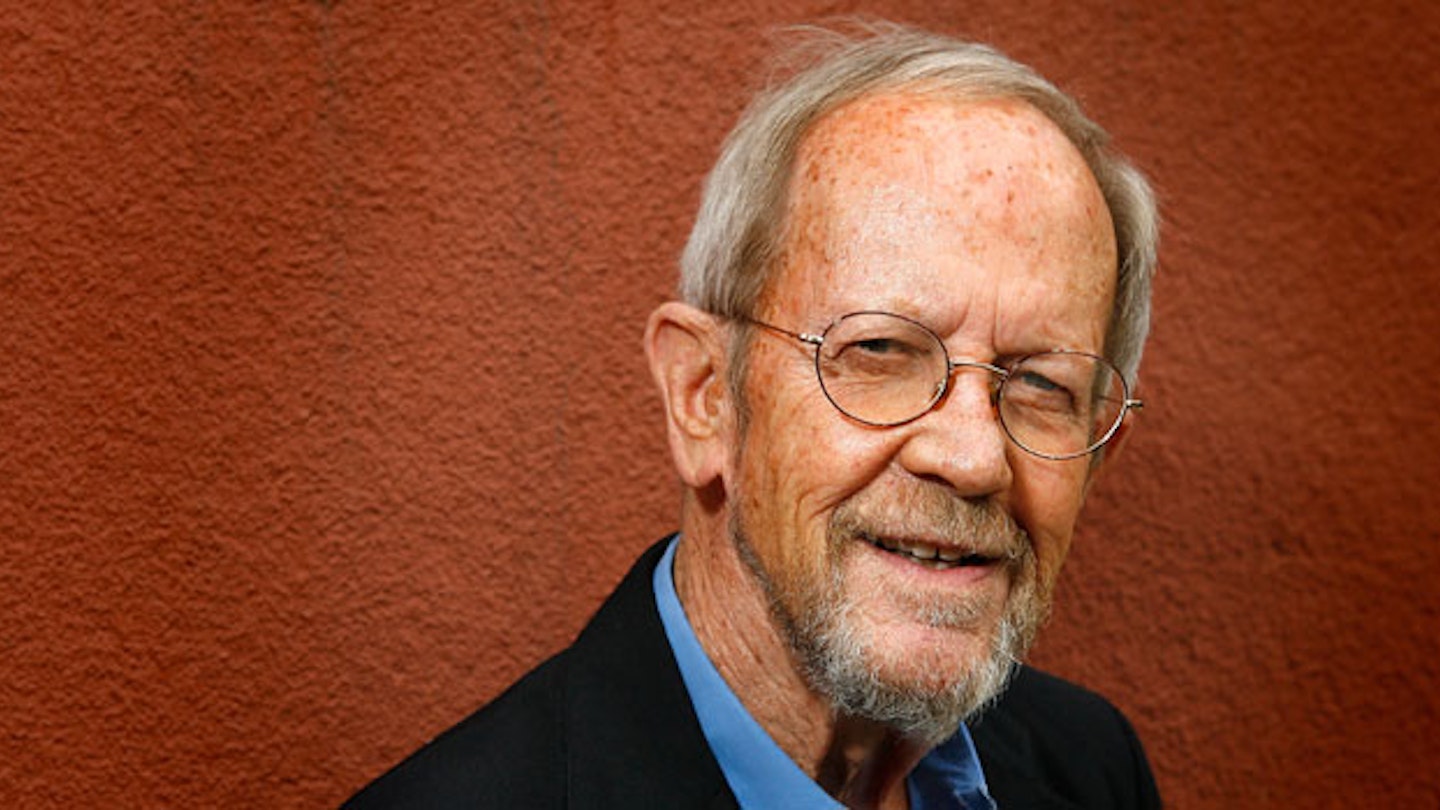Few American writers have had as much impact on Hollywood and the wider world as Elmore Leonard, famed for his no-nonsense prose and genuinely inspirational writing in several genres, most notably crime and Westerns. He died this morning at the age of 87, following complications from a stroke.
Born in Louisiana in 1925, Leonard’s family moved to Detroit when he was nine and he became hooked on a serialization of Erich Maria Remarque’s novel All Quiet On The Western Front. An early inspiration, it fuelled his desire to write, including, in those fledgling days, a play and articles for the school paper.
He served three years in the Navy after high school and then enrolled at Detroit University, where he pushed himself to write more. After graduation, and finding little success getting published, he took a job at an advertising agency, continuing to write outside the office. His big break in fiction came in 1951, when short story Trail Of The Apache was published in Argosy Magazine, which ultimately led to his first novel, 1954’s The Bounty Hunters. Westerns would dominate the early stages of his fiction career, with books such as The Captives and 3:10 To Yuma being adapted for the screen more than once.
With the Wild West genre in decline in the 1960s, Leonard turned to crime – crime fiction, that is – earning the nickname the Dickens of Detroit for his tales of low-rent hucksters and gritty neighbourhoods.
Among his most famous works, many adapted for screens of all sizes, include The Big Bounce, Cat Chaser, Get Shorty, Maximum Bob, Rum Punch, Bandits, Out Of Sight, Be Cool and Fire In The Hole, which is currently on TV screens as the inspiration for the excellent crime drama Justified.
Hailed by the likes of Stephen King as one of the great American writers, Leonard’s justifiably acclaimed for his pithy prose. “I'm very much aware in the writing of dialogue, or even in the narrative too, of a rhythm. There has to be a rhythm with it,” he once said. “Interviewers have said, you like jazz, don’t you? Because we can hear it in your writing. And I thought that was a compliment.”
While he was beloved for his punchy, stylish but never laboured style, Leonard also had wise words to offer on the subject of the craft itself. His 10 Rules included “Try to leave out the part that readers tend to skip”, so we’ll leave it with this: we’ll miss you, Mr Leonard.
